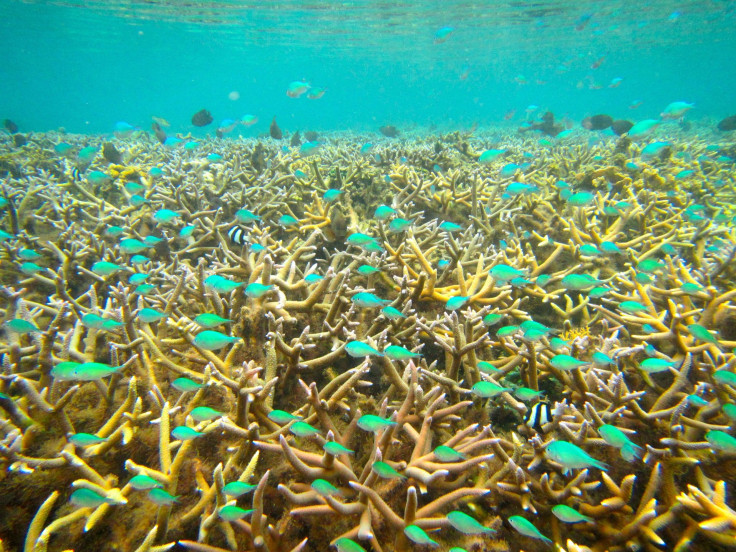Coral Reef Protection: Marine Sanctuaries Can Be Counterproductive If They Are Small In Size

That corals around the world are dying under an onslaught of various human activities is nothing new, and a number of conservation efforts have been underway for decades now. But small marine protected areas (MPAs) that have been established to allow coral reefs and associated fish species to recover from the ravages of overfishing could actually be, unwittingly, making things worse, a study found.
Using the example of an MPA in Fiji Islands, Mark Hay, one of the two authors of the study and a professor at Georgia Institute of technology, said in a statement Monday: “The marine protected areas that are enforced in the Fiji Islands are having a remarkable effect. The corals and fishes are recovering. But once these marine protected areas are successful, they attract the sea stars which can make the small marine protected areas victims of their own success.”
Sea stars (Acanthaster spp.) are coral predators and when an MPA becomes rich in corals, they move into them from nearby coral-poor areas to find easy prey. The study found “Acanthaster densities within a network of small, no-take MPAs on reef flats in Fiji were ~2–3.4 times greater inside MPAs than in adjacent fished areas and ~2–2.5 times greater than the upper threshold density indicative of an outbreak.”
In the Fiji Islands, many villages have established small MPAs in their local areas where fishing is not allowed. It allows corals to recover, which in turn makes for a healthier marine ecosystem. Cody Clements, a Georgia Tech graduate student who conducted the research and co-authored the study, found that the MPAs attracted a much larger number of predators than fishing areas nearby. But the predation of corals by sea stars is nothing new in the region.
“Reefs are facing many novel stressors today. They might have been able to tolerate crown-of-thorns attacks in the past that are too much for them now. There are multiple threats facing coral reef ecosystems, and this doesn’t help,” Clements said in the statement.
The researchers stressed they did not want to discourage the establishment of more MPAs, and that they only wanted to “raise an issue of concern to them people who manage them.”
The study, titled “Size matters: Predator outbreaks threaten foundation species in small Marine Protected Areas,” was published Monday in the journal PLOS ONE.
© Copyright IBTimes 2025. All rights reserved.





















